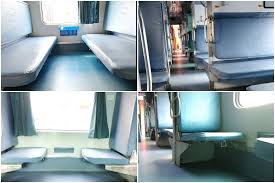“The Roof Mounted AC Package Unit (RMPU) system of Indian Railways AC coaches replaces air more than 16-18 times per hour just like in OTs,” officials said.
Previously, these AC trains had air change six to eight times per hour and 80 per cent of the air that was pushed into coaches was recirculated air, while 20 per cent was fresh air.
However, with the increase in the number of air changes, there has been a 10 to 15 per cent increase in energy consumption.
“This is the price one has to pay for the safety of passengers. This is the new normal. The way an AC works is that it uses recirculated air so that it gets cooler faster. When we use fresh air it takes more time to cool, so there’s additional energy consumption,” an officer said.
The Railways has also increased the centralised AC’s temperature from the usual 23 degrees to 25 degrees as passengers are no longer being provided linen.
Officials said that on the advise of the health experts, the Railways’ has modified its non-AC coaches as isolation coaches for treating mild corona virus cases and said that they have also applied health ministry guidelines to modify the AC units on board the special Rajdhani trains to ensure that the disease does not spread.
As per the Ministry of Health guidelines, centralised AC is acceptable provided complete air change inside an AC coach takes place at least 12 times per hour, officials said.
So far, only a study by Chinese researchers has concluded that droplet transmission was prompted by air-conditioned ventilation. Not many other studies, however, have associated AC use with corona virus spread.





